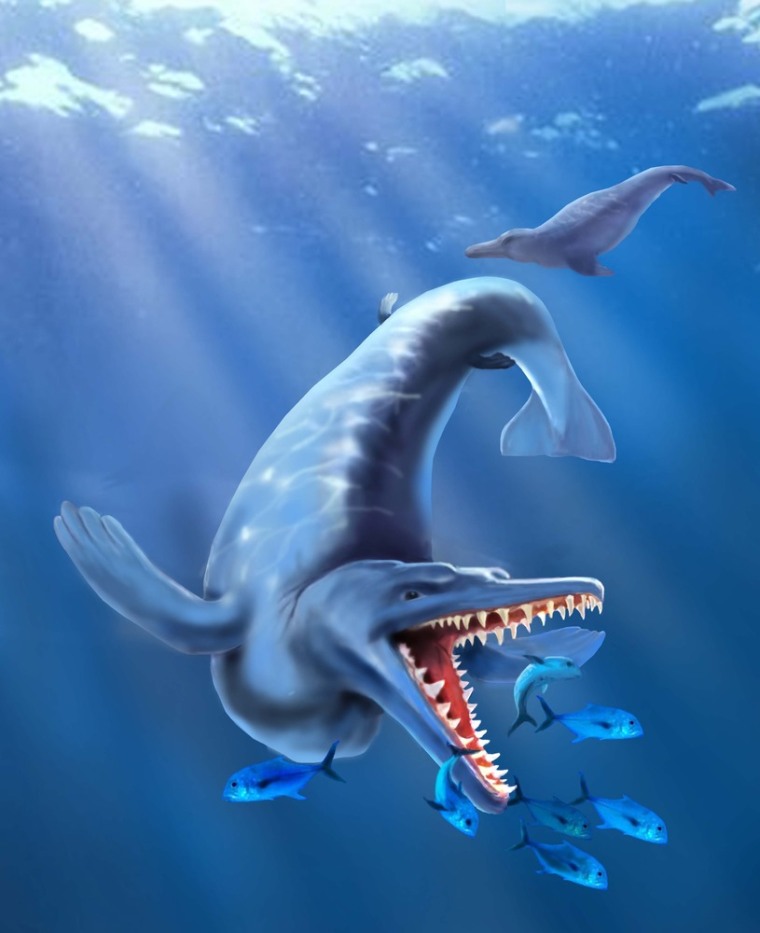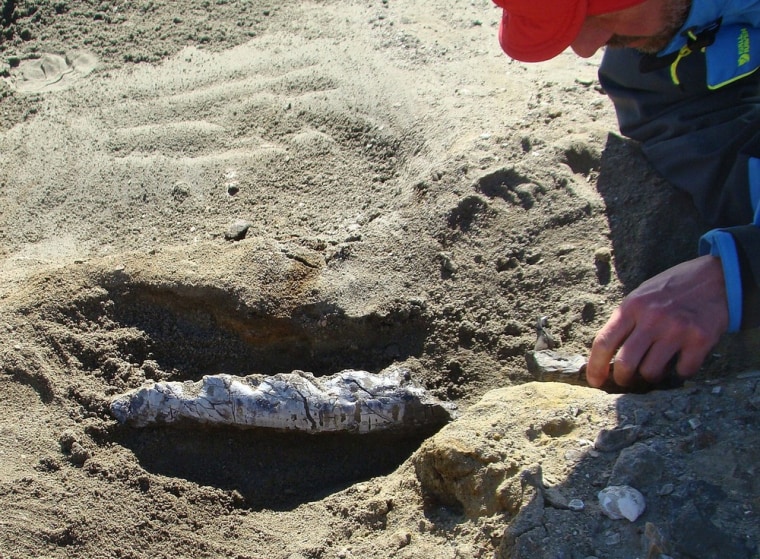The jawbone of an ancient whale found in Antarctica may be the oldest fully aquatic whale yet discovered, Argentine scientists said Tuesday.
A scientist not involved in the find said it could suggest that whales evolved much more quickly from their amphibian precursors than previously thought.
Argentine paleontologist Marcelo Reguero, who led a joint Argentine-Swedish team, said the fossilized archaeocete jawbone found in February dates back 49 million years. In evolutionary terms, that's not far off from the fossils of even older proto-whales from 53 million years ago that have been found in South Asia and other warmer latitudes.
Those earlier proto-whales were amphibians, able to live on land as well as sea. This jawbone, in contrast, belongs to the Basilosauridae group of fully aquatic whales, said Reguero, who leads research for the Argentine Antarctic Institute.
"The relevance of this discovery is that it's the oldest known completely aquatic whale found yet," said Reguero, who shared the discovery with Argentine paleontologist Claudia Tambussi and Swedish paleontologists Thomas Mors and Jonas Hagstrom of the Natural History Museum in Stockholm.

Paul Sereno, a University of Chicago paleontologist who wasn't involved in the research, said that if the new find withstands the scrutiny of other scientists, it will suggest that archaeocetes evolved much more quickly than previously thought from their semi-aquatic origin in present-day India and Pakistan.
"The important thing is the location," Sereno said. "To find one in Antarctica is very interesting."
